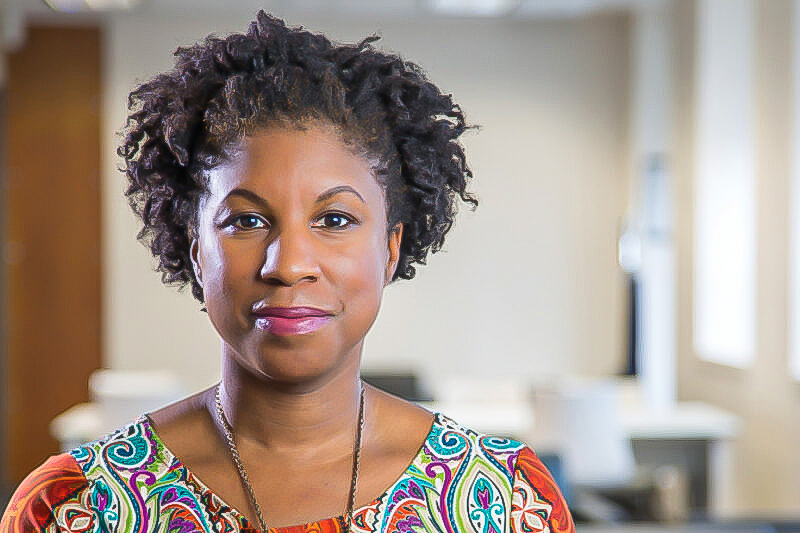Professor Charmaine C. Williams appointed as Dean of the Factor-Inwentash Faculty of Social Work
Professor Williams speaks on her new appointment as Dean of the FIFSW, her research on health equity for minority groups, and the inequalities faced by Black students and academics.
On January 1, 2023, Professor Charmaine C. Williams started a five-year term as Dean of the Factor-Inwentash Faculty of Social Work (FIFSW). She is the first Black woman to hold the position of dean at the FIFSW, and the second Black professor to do so after the previous dean, Professor Dexter Voisin.
Professor Williams completed her Master of Social Work and PhD at the FIFSW, later joining U of T as a faculty member in 2002. She has held various positions within U of T, such as associate dean, academic of the FIFSW from 2009 to 2014, and most recently, vice dean of students at the School of Graduate Studies from 2018 to 2021. Professor Williams works as a social worker in mental health and conducts research on social work and healthcare, investigating health equity in relation to groups that already face systemic discrimination, such as women of colour, and the 2SLGBTQI+ community.
Outside of U of T, Professor Williams has served on panels addressing Canadian social issues, with a focus on racial and health equity. An example is her position on the Public Health Agency of Canada’s panel for their Mental Health of Black Canadians Initiative—a project that explores the inequalities and challenges experienced by Black Canadians regarding mental health support and develops programs to tackle these issues.
In addition to her appointment as dean, Professor Williams is the Sandra Rotman Chair in Social Work. In this role, she focuses on researching emerging trends in the social work profession. Professor Williams’ interests lie in the new trend of social workers choosing to practice outside of traditional social work organizations in favour of initiating and leading independent organizations. “Before, there were standard places you expect social workers to practice, for example, they’d be in hospitals, child and family services, or they’d be in a school board,” says Professor Williams in conversation with The Medium. “But what’s changing is that more social workers are establishing private practices or standalone social service organizations outside of the system.”
She hopes to find the causes behind this change and its relationship with institutional oppression. “I first noticed this happening with our Black and Indigenous graduates, who were setting up systems and organizations that were independent because they felt the system was too broken to meet the needs of their community,” shares Professor Williams. These independent social work services are being used to develop effective strategies and resources that specific communities can utilize, instead of institutions that were not historically built for them.
Professor Williams also has many goals she hopes to attain and explore as dean, a main one being diversity in social work. “Social work is more diverse than it’s ever been before,” says Professor Williams, “but as we become more representative of different populations, we have to change the way that we do social work.” Citing the multiculturalism of Toronto, Professor Williams acknowledges U of T’s and the FIFSW’s responsibility to be “culturally responsive, across the spectrum of identities, and also responsive to the fact that we are practicing social work in a globalized environment.”
Diversity and inclusion are important in academia—where members belonging to a minority, particularly Black students and academics, have a history of experiencing discrimination. Professor Williams references her own experiences as a Black woman in academia, saying, “I can think of many incidents that showed people were surprised to see me in that space, and I felt that my ambitions were undermined by people’s low expectations.” She explains research that shows systematic discrimination against racial minority faculty members, such as lower course evaluations or higher service loads.
To combat this, Professor Williams encourages finding a community and forming relationships with others that understand these struggles, such as student associations. Additionally, joining committees aimed to find solutions for such problems empowers students and faculty members to have their voice heard and contribute their own perspectives.
On February 6, 2023, the Anti-Racism and Cultural Diversity Office will hold the Black History Month Symposium from 1:00 p.m. to 3:00 p.m. The event will take place on Zoom, and students can join to learn about anti-Black racism and how attitudinal barriers affect Black communities in general and in post-secondary environments. Professor Williams will be giving the opening remarks, and there will be a panel discussion with Black leaders in Canadian academia.

